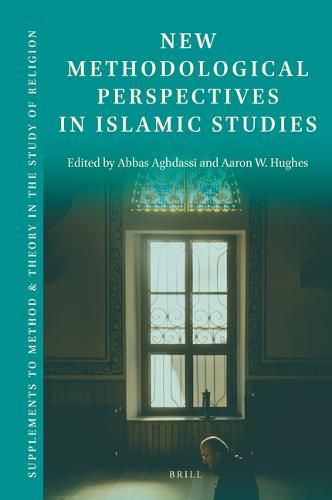Readings Newsletter
Become a Readings Member to make your shopping experience even easier.
Sign in or sign up for free!
You’re not far away from qualifying for FREE standard shipping within Australia
You’ve qualified for FREE standard shipping within Australia
The cart is loading…






This volume draws attention to and moves beyond the traditional methodological frames that have governed knowledge production in the academic study of Islam. Departing from Orientalist and largely textual studies, the chapters collected herein revolve around three main themes: gender, the political, and what has come to be known as "lived Islam." The first involves ascertaining how to read gender and gender issues into traditional sources. The second encourages an attunement to the often delicate intersection between the spheres of religion and politics. The final provides a corrective to our traditional over-emphasis on the interpretation of texts and a preoccupation with studying (mainly male) elites. Taken as a whole, this volume encourages a multi-methodological approach to the study of Islam.
Contributors include Abbas Aghdassi, Aaron W. Hughes, Eva Kepplinger, Taira Amin, Betuel Avci, Ali Abedi Renani and Seyyed Ebrahim Sarparast Sadat, Meral Durmus and Bahattin Aksit, Walid Ghali, Isabella Crespi and Martina Crescenti, Brian Arly Jacobsen, Pernille Friis Jensen, Kirstine Sinclair, and Niels Valdemar Vinding, Magdalena Pycinska, Zahraa McDonald, Emin Poljarevic, Abdessamad Belhaj.
$9.00 standard shipping within Australia
FREE standard shipping within Australia for orders over $100.00
Express & International shipping calculated at checkout
This volume draws attention to and moves beyond the traditional methodological frames that have governed knowledge production in the academic study of Islam. Departing from Orientalist and largely textual studies, the chapters collected herein revolve around three main themes: gender, the political, and what has come to be known as "lived Islam." The first involves ascertaining how to read gender and gender issues into traditional sources. The second encourages an attunement to the often delicate intersection between the spheres of religion and politics. The final provides a corrective to our traditional over-emphasis on the interpretation of texts and a preoccupation with studying (mainly male) elites. Taken as a whole, this volume encourages a multi-methodological approach to the study of Islam.
Contributors include Abbas Aghdassi, Aaron W. Hughes, Eva Kepplinger, Taira Amin, Betuel Avci, Ali Abedi Renani and Seyyed Ebrahim Sarparast Sadat, Meral Durmus and Bahattin Aksit, Walid Ghali, Isabella Crespi and Martina Crescenti, Brian Arly Jacobsen, Pernille Friis Jensen, Kirstine Sinclair, and Niels Valdemar Vinding, Magdalena Pycinska, Zahraa McDonald, Emin Poljarevic, Abdessamad Belhaj.